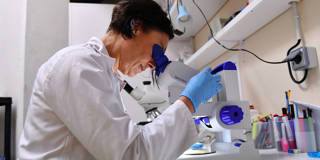Women have long faced immense obstacles in their pursuit of science careers, and the global scientific community must recommit to making them full partners in the quest for human knowledge. Doing so would yield an enormous payoff for scientific discovery.
LONDON – Two years ago, the United Nations designated February 11 the International Day of Women and Girls in Science. As we approach another commemoration, it is worth reflecting on female scholars’ countless contributions to science and technology.
But even more important is to consider why the UN acted in the first place. Simply put, women have long suffered in their pursuit of science careers, and the global scientific community must recommit to making them full partners in the quest for human knowledge.
Achieving gender parity would yield an enormous payoff for scientific discovery. Last year marked the 150th anniversary of the birth of Poland’s Marie Curie, one of the greatest scientists of all time. Curie was the first woman to win a Nobel Prize, the only woman to win two, and the only person to do so in two different sciences: physics in 1903 and chemistry in 1911.

LONDON – Two years ago, the United Nations designated February 11 the International Day of Women and Girls in Science. As we approach another commemoration, it is worth reflecting on female scholars’ countless contributions to science and technology.
But even more important is to consider why the UN acted in the first place. Simply put, women have long suffered in their pursuit of science careers, and the global scientific community must recommit to making them full partners in the quest for human knowledge.
Achieving gender parity would yield an enormous payoff for scientific discovery. Last year marked the 150th anniversary of the birth of Poland’s Marie Curie, one of the greatest scientists of all time. Curie was the first woman to win a Nobel Prize, the only woman to win two, and the only person to do so in two different sciences: physics in 1903 and chemistry in 1911.